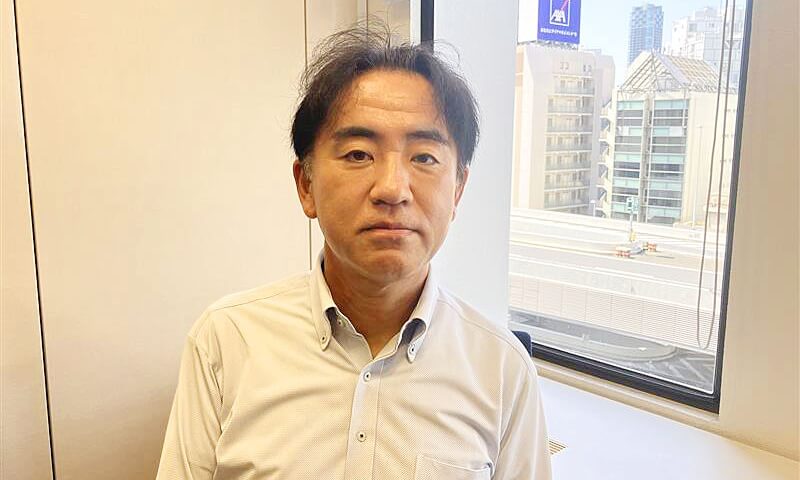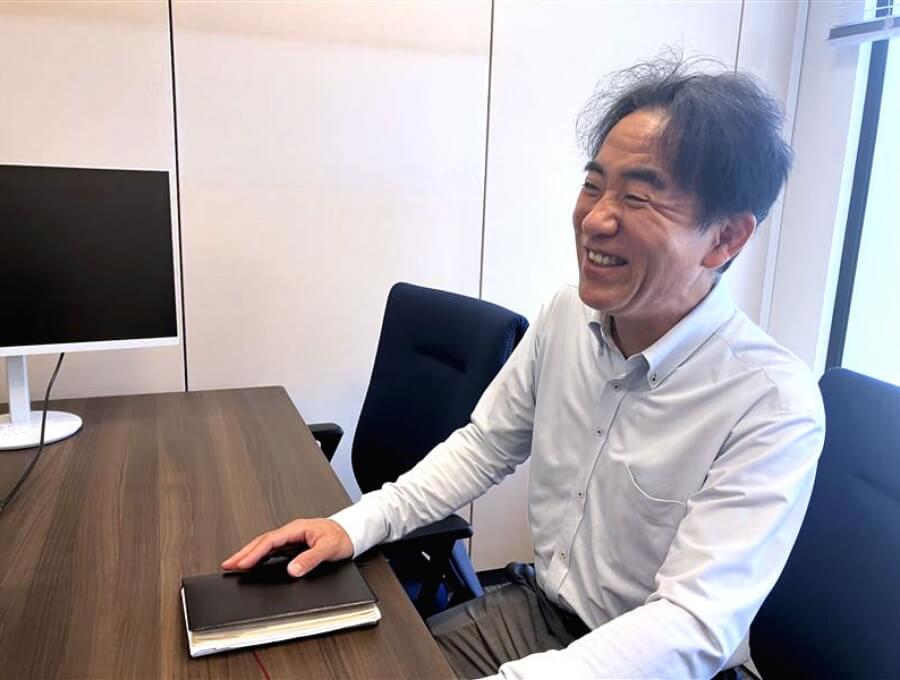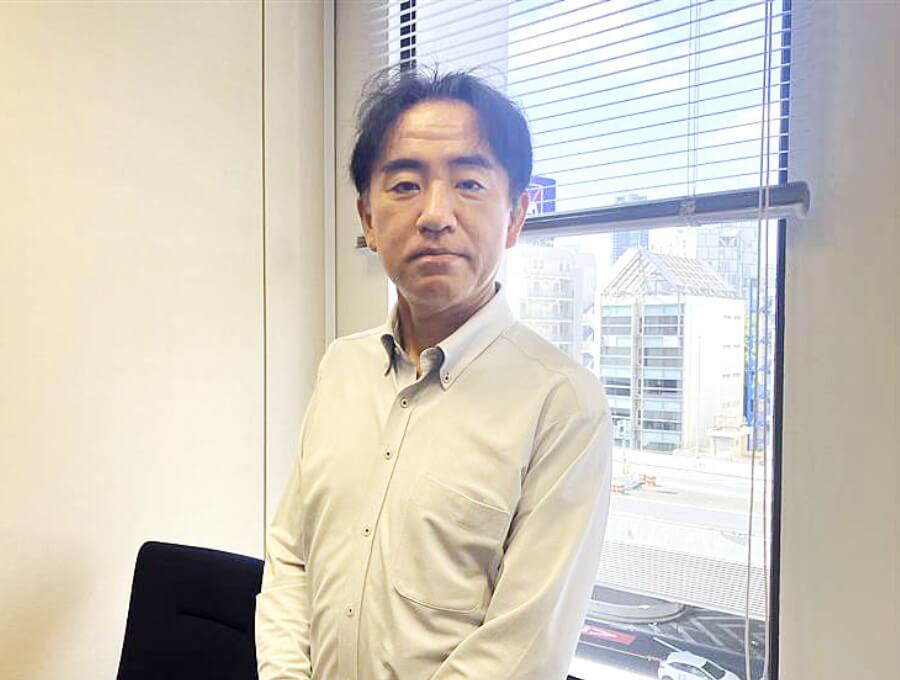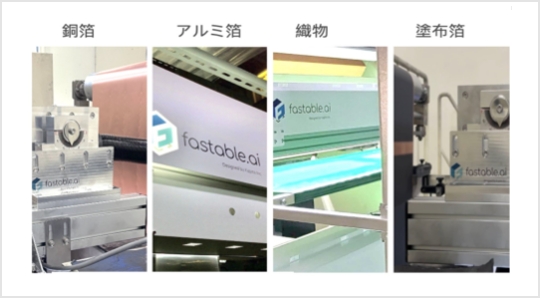
Kapito Japan Co., Ltd.
Takashi Naito, Manager of Global Sales Department
We spoke directly with Takashi Naito, Manager of the Global Sales Department at Kapito Japan.
Provision of AI-Powered Visual Quality Inspection Machines for Small and Medium-Sized Businesses
QCould you tell us about the background of your company's founding?
Our company was established in Taiwan in 2017 by three founders: two individuals with over 15 years of experience in image recognition AI and large-scale software architecture in Silicon Valley, and our company representative, who has over 20 years of experience and research accomplishments in the semiconductor field. We are currently focusing on the markets of Taiwan, China, and Japan. Our first customer was a friend of our representative who is involved in the manufacturing industry in Taiwan. They had concerns about the quality of the aluminum foil used in capacitors. As an aid, our fastable AI was developed with the primary functions of automating quality checks and identifying defects through the use of image recognition AI.
QWhat are the strengths of your company's products?
 I believe we have three main strengths. The first is in the field of quality and visual inspections with AI, where we started earlier than other companies and have a longer track record. During our founding period, artificial intelligence itself was still in its infancy. Therefore, I believe that we have an advantage in terms of the volume of information and the number of cases we have been able to train on from that era to the present. Secondly, although it is called a visual inspection, it is not simply a matter of determining whether quality is acceptable or not; rather, it is the ability to categorize and analyze approximately 40 to 50 types of defects and their conditions. We believe that this can be utilized for predicting the causes of defects as well as forecasting risks in the production line. Finally, it allows for flexibility in adjusting parameters and fine-tuning CNNs according to each manufacturing site’s specific needs, rather than relying on a packaged product.
I believe we have three main strengths. The first is in the field of quality and visual inspections with AI, where we started earlier than other companies and have a longer track record. During our founding period, artificial intelligence itself was still in its infancy. Therefore, I believe that we have an advantage in terms of the volume of information and the number of cases we have been able to train on from that era to the present. Secondly, although it is called a visual inspection, it is not simply a matter of determining whether quality is acceptable or not; rather, it is the ability to categorize and analyze approximately 40 to 50 types of defects and their conditions. We believe that this can be utilized for predicting the causes of defects as well as forecasting risks in the production line. Finally, it allows for flexibility in adjusting parameters and fine-tuning CNNs according to each manufacturing site’s specific needs, rather than relying on a packaged product.
QWhy did you consider expanding into Japan?
We did not specifically aim to enter the Japanese market, but we had an opportunity when a Japanese company showed interest in our company and responded positively after engaging with us. Additionally, although our company’s representative is Taiwanese, they were greatly impressed by the quality and philosophy of Japanese manufacturing. It has long been their aspiration to enter the Japanese market, and with the support of the Tokyo Metropolitan Government, they established a Japanese corporation in 2024.
QDo you have any current challenges you are facing?
As an international startup, we face challenges in building a network and creating use cases within Japan. Although it is a foreign-made product, the manual and UI design have been localized with consideration for use in Japan, and it is intended to be customized to suit on-site needs. We believe that utilizing the product will allow users to truly appreciate its advantages, but I feel that the initial challenge lies in how we approach others to introduce the product effectively.
QWhat types of collaborators are you looking to engage with in the future?
I believe it will be most useful for customers engaged in Roll-to-Roll processes, particularly in quality control at sites of large-lot production. We often receive positive feedback on our system for its ability to reduce the labor hours required for manual visual inspections in later processes under traditional systems and for its effectiveness in identifying minor defects that may be beyond human detection. On the other hand, at sites where a wide variety of items are produced in small lots, there may be cases where the benefits of improved efficiency and quality precision justify the costs. Therefore, I believe this will resonate most with those in charge of medium-sized or larger production sites that require a significant amount of human labor.
QCould you please share a message for the Japanese companies?
 In recent times, with the rise of various technologies, companies including startups like ours are competing in technology both domestically and internationally. However, I believe there are many companies in Japan that possess highly advanced and exceptional, although perhaps analog, production techniques that are recognized globally. I believe that many companies are currently facing challenges such as labor shortages and the emergence of competing technologies. Now is the time to invigorate Japanese manufacturing by incorporating trends from new industries like AI, such as by using our services, while combining tradition and innovation.
In recent times, with the rise of various technologies, companies including startups like ours are competing in technology both domestically and internationally. However, I believe there are many companies in Japan that possess highly advanced and exceptional, although perhaps analog, production techniques that are recognized globally. I believe that many companies are currently facing challenges such as labor shortages and the emergence of competing technologies. Now is the time to invigorate Japanese manufacturing by incorporating trends from new industries like AI, such as by using our services, while combining tradition and innovation.
Case Studies

Overseas startups expanding into Tokyo
×
Tokyo companies
3-8-3 Marunouchi, Chiyoda-ku, Tokyo
Tokyo Innovation Base 1F
Square 1



